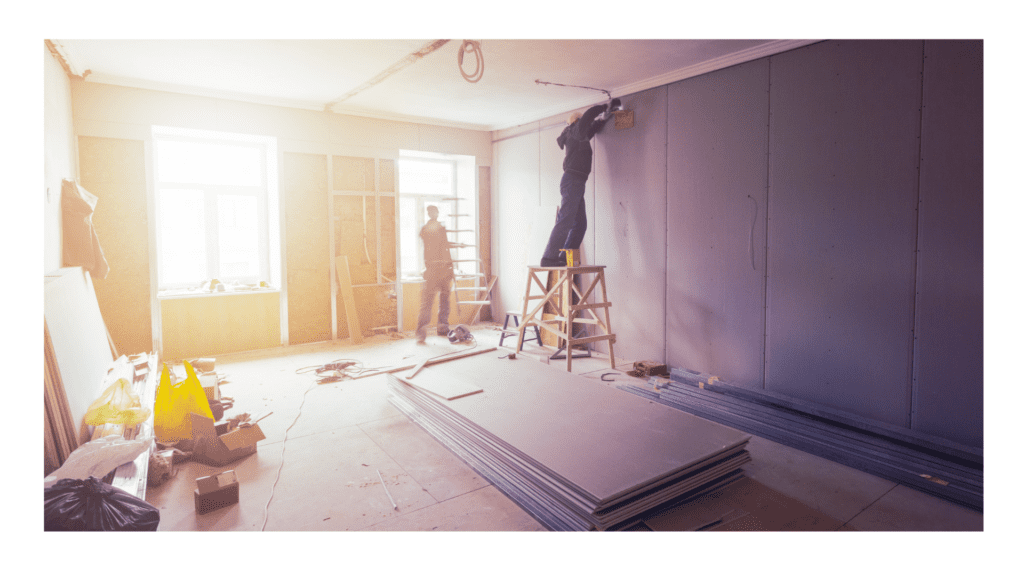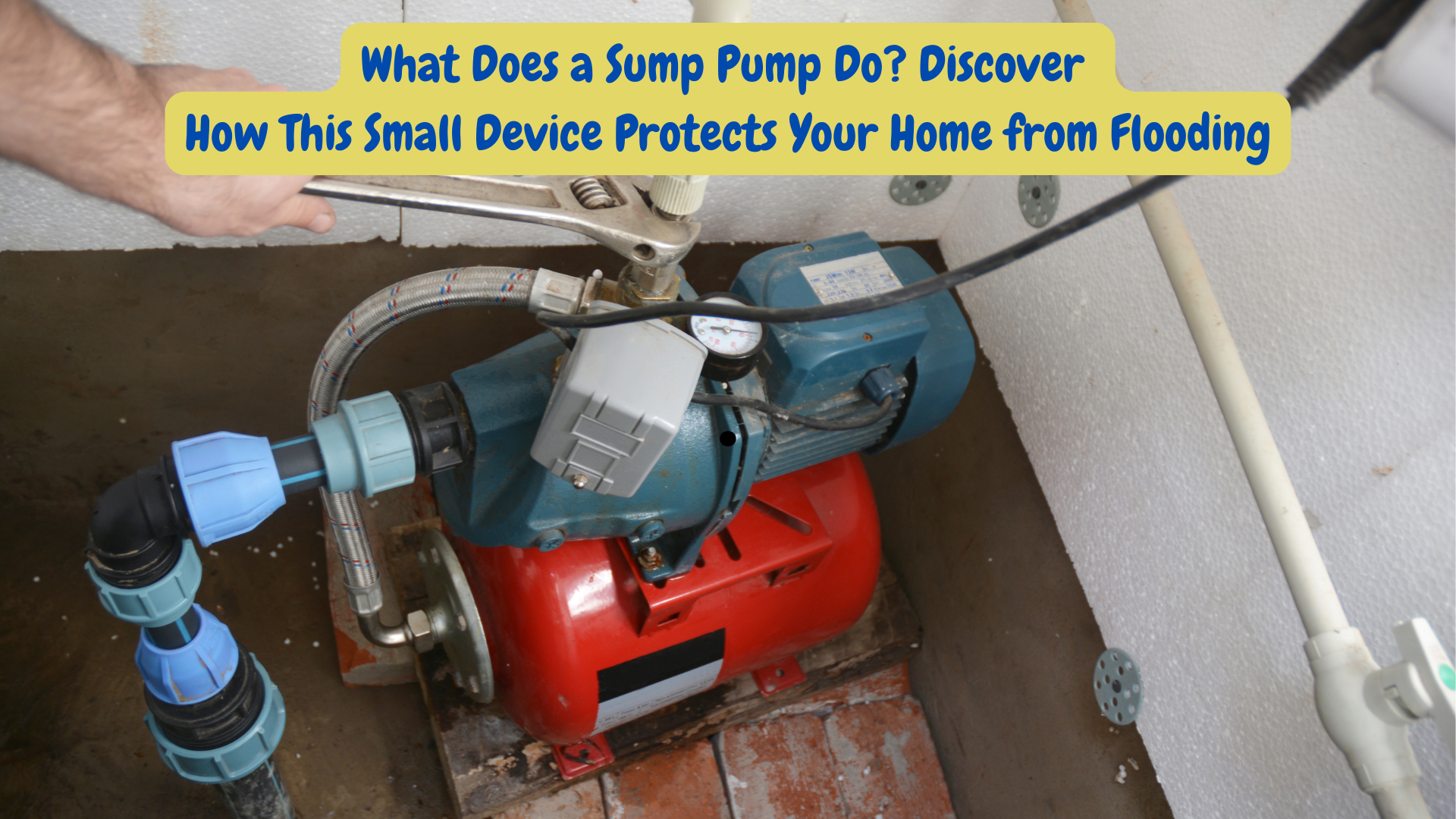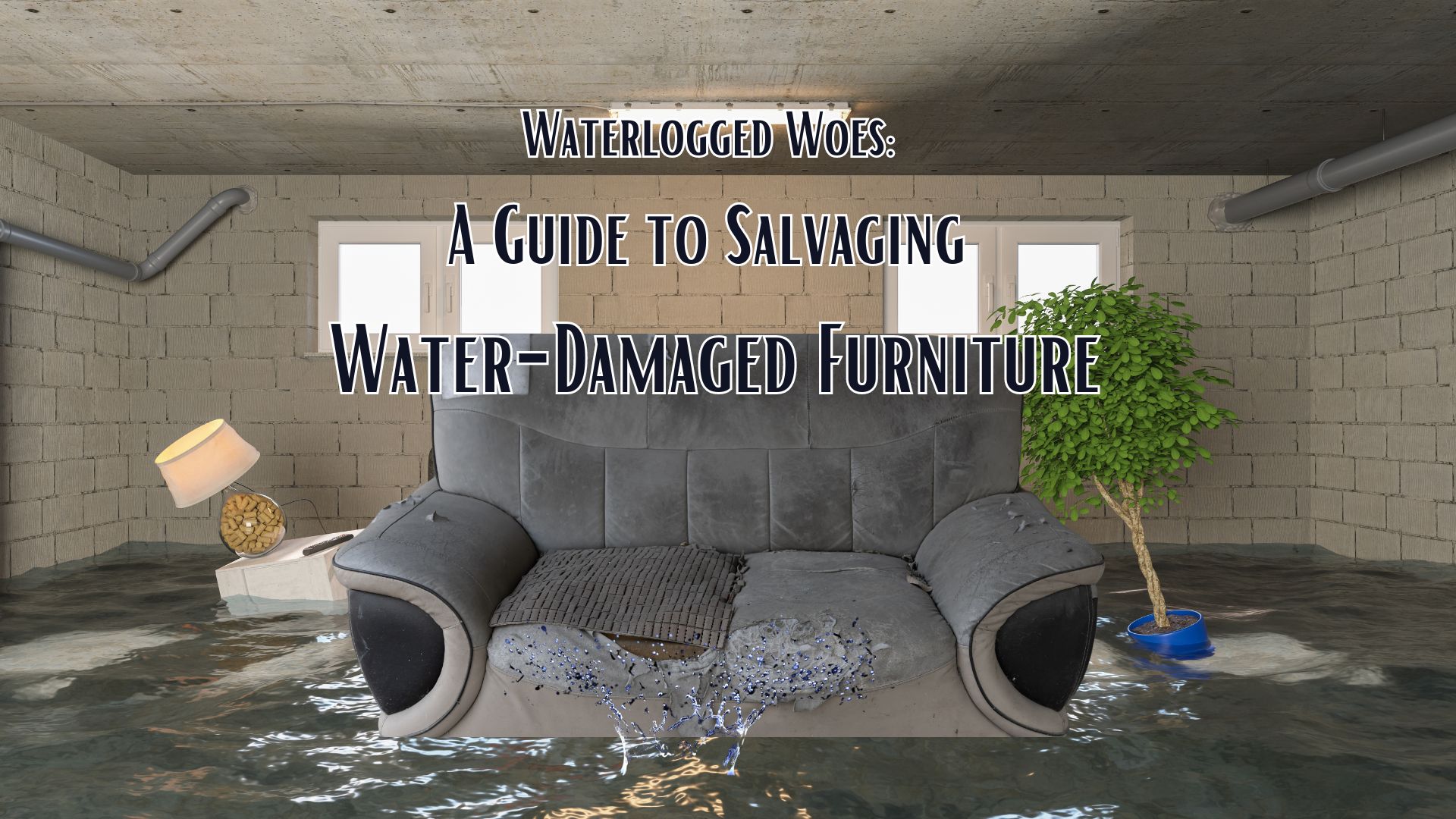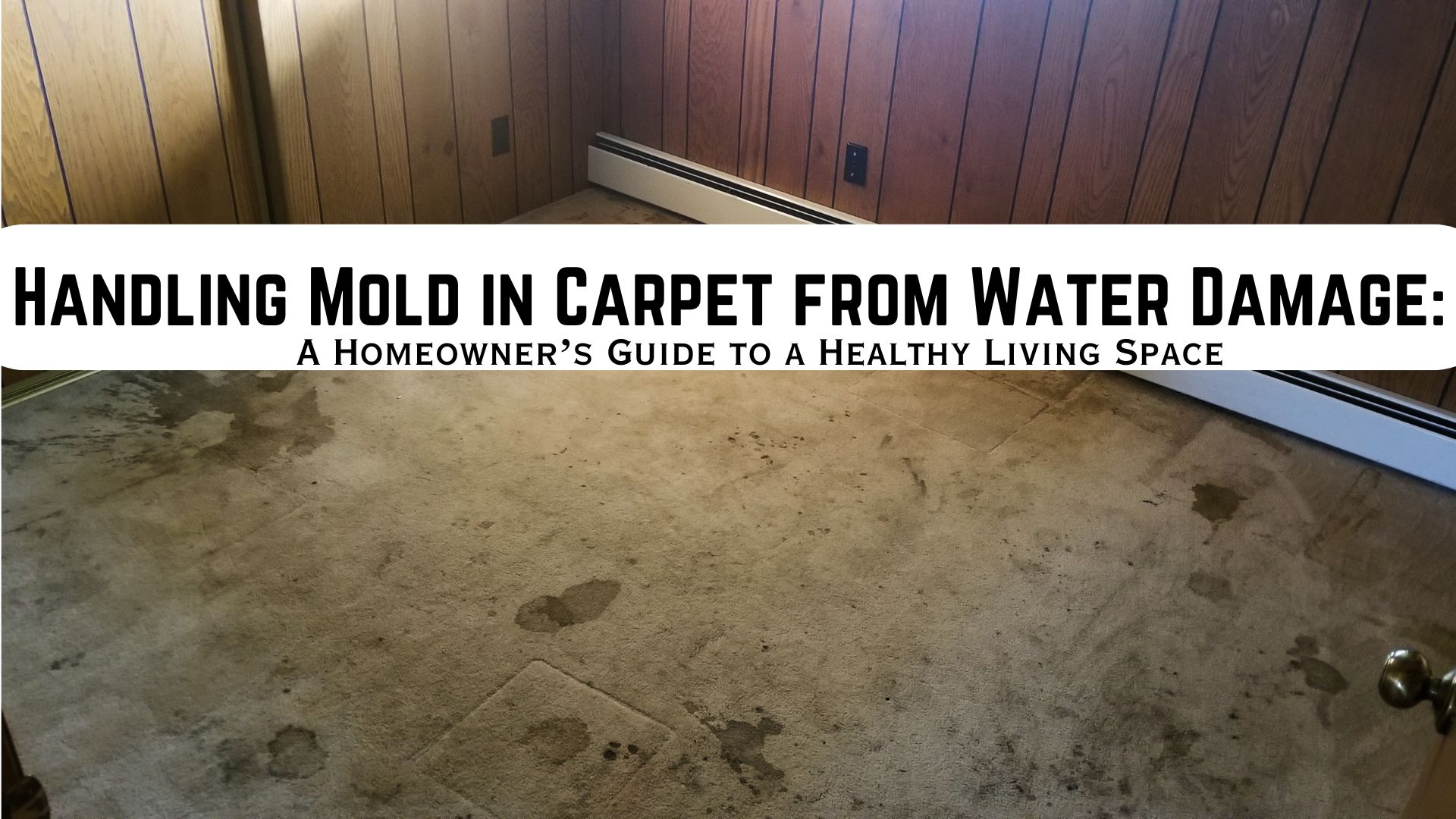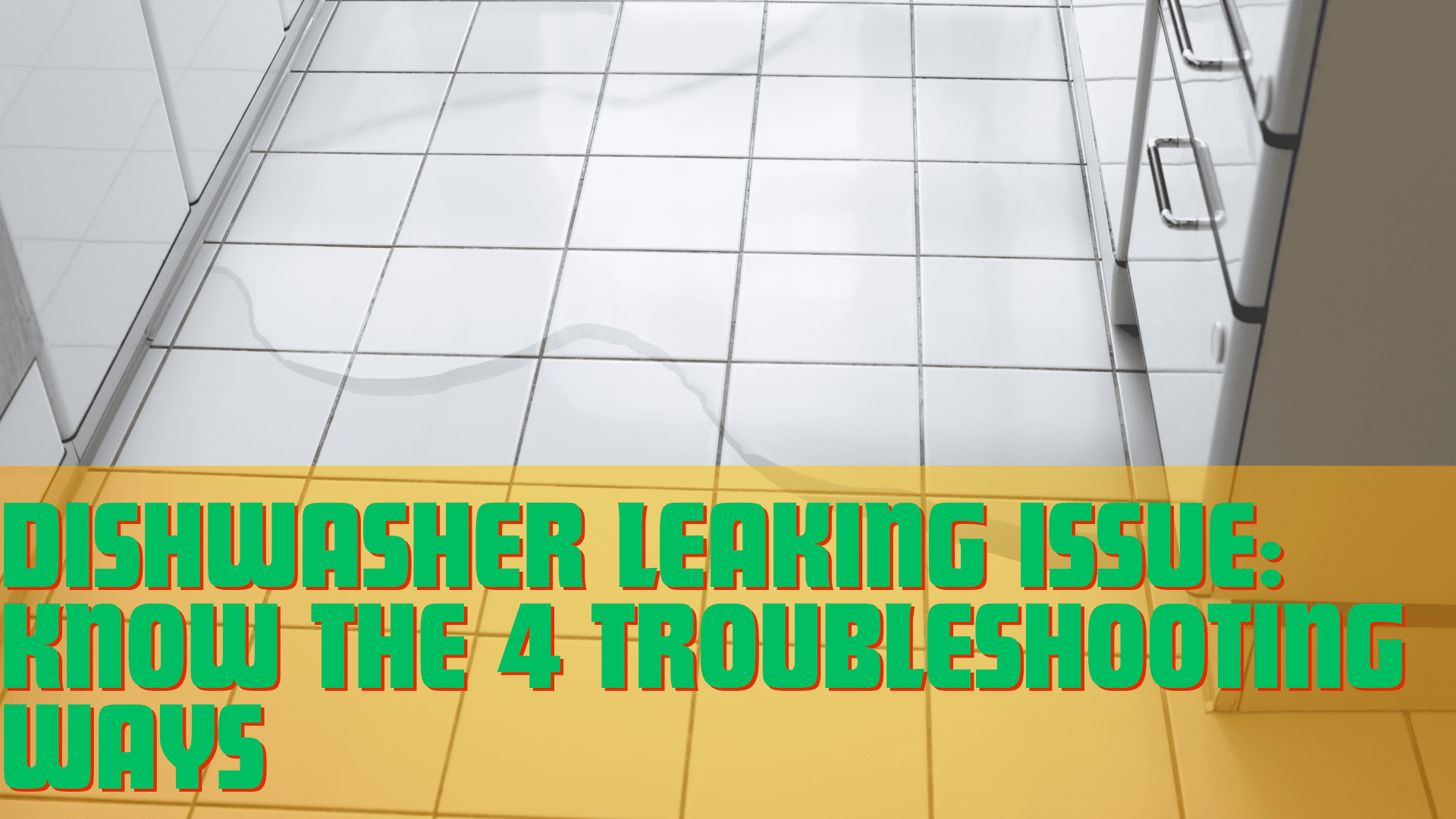
A dishwasher is a modern convenience that saves time and effort in the kitchen. Nonetheless, similar to any other household appliance, it can encounter issues. One common issue that many homeowners face is a dishwasher leaking. In this comprehensive blog post, we’ll dive deep into the causes of dishwasher leaks and provide practical solutions to help you resolve this problem. We’ll also explore preventative measures, maintenance tips, and the importance of professional assistance when necessary. Let’s get started!
I. Understanding the Causes of Dishwasher Leaks
1. Faulty Door Gasket
One of the primary reasons for dishwasher leaks is a damaged or worn-out door gasket. This rubber seal that runs around the dishwasher door may deteriorate over time, allowing water to seep out during a wash cycle.
2. Loose or Damaged Hose Connections
The hoses that supply water to and drain water from your dishwasher can develop leaks if they are improperly connected or damaged. Check these connections for any signs of wear or loosening.
3. Cracked or Clogged Drain Hose
A cracked or clogged drain hose can lead to water buildup inside the dishwasher, causing leaks. Ensure that the drain hose is intact and free from obstructions.
4. Overfilling
Overloading your dishwasher or adding too much detergent can lead to excessive suds and overflow. This can cause water to leak from the dishwasher’s door or other vulnerable areas.
5. Faulty Float Switch
The float switch is responsible for regulating the water level inside the dishwasher. If it malfunctions, it might not stop the water from entering, resulting in leaks.
II. Solving Dishwasher Leaking Issues
1. Inspect and Replace the Door Gasket
If the door gasket is damaged or worn, it’s time for a replacement. Consult your dishwasher’s user manual for specific instructions on replacing the gasket.
2. Check Hose Connections
Carefully inspect the water supply and drain hose connections. Secure any connections that have come loose and replace any hoses that are damaged as necessary.
3. Examine the Drain Hose
Check the drain hose for cracks or clogs. Clean or replace the hose if necessary. Make sure it’s properly installed, with no kinks or bends that could impede water flow.
4. Avoid Overloading
Be mindful of the dishwasher’s loading capacity, and use the recommended amount of detergent. Proper loading ensures efficient cleaning and reduces the risk of leaks.
5. Test the Float Switch
If you suspect the float switch is the issue, consult your dishwasher’s manual for guidance on testing and, if necessary, replacing it.
III. Preventative Measures for Future Dishwasher Leaks
To minimize the risk of future dishwasher leaks and water damage issues, consider implementing the following preventative measures:
- Regular Inspections: Perform routine inspections of your dishwasher, checking for signs of wear, loose connections, or leaks. Promptly address any issues you discover.
- Proper Loading: Avoid overloading your dishwasher, which can lead to water splashes and leaks. Follow the manufacturer’s guidelines for loading capacity.
- Use Quality Detergent: Always use the dishwasher detergent recommended by the manufacturer. Using the wrong detergent can result in excessive suds and leaks.
- Follow Maintenance Guidelines: Refer to your dishwasher’s user manual for specific maintenance recommendations. This may include cleaning the filter, checking hoses, and inspecting the door gasket.
- Professional Maintenance: Consider scheduling regular professional maintenance for your dishwasher. A trained technician can identify and address potential issues before they become major problems.
- Leak Detectors: Install water leak detectors near your dishwasher and other water-prone areas in your home. These devices can alert you to leaks as soon as they occur, potentially preventing significant damage.
IV. The Importance of Professional Assistance
While some dishwasher leaks can be fixed with simple DIY solutions, there are instances where professional assistance is essential. Here are a few scenarios where contacting experts, such as Superior Restoration, can be crucial:
1. Extensive Water Damage: If your dishwasher has leaked extensively and caused significant water damage to your kitchen or adjacent areas, it’s essential to address not only the appliance issue but also the water damage itself. Professionals have the tools and expertise to mitigate water damage, preventing further issues like mold growth and structural damage.
2. Recurring Leaks: If you’ve tried DIY solutions, and the dishwasher continues to leak, there might be an underlying issue that requires a professional assessment. A trained technician can diagnose and fix the problem correctly.
3. Electrical Concerns: Leaks in the dishwasher can pose electrical hazards. If you suspect any electrical issues related to the leak, it’s crucial to involve a professional who can safely handle the situation.
4. Warranty Considerations: Consulting a professional technician is often a requirement to maintain your dishwasher’s warranty. Attempting unauthorized repairs can void your warranty, potentially costing you more in the long run.
Superior Restoration: Your Trusted Partner in Water Damage Solutions
In situations where dishwasher leaks have caused extensive water damage, it’s vital to have a reliable partner like Superior Restoration to help you through the process. They offer a range of services that can assist homeowners facing water damage issues, including those caused by dishwasher leaks. Some of the services they provide include:
- Water Extraction and Drying: When water damage occurs, quick response and efficient water extraction are essential to prevent further damage. Superior Restoration utilizes advanced equipment to remove water and moisture, followed by thorough drying to prevent mold growth and structural damage.
- Mold Remediation: If your dishwasher leak has led to mold growth, Superior Restoration can assess the extent of the problem and provide effective mold remediation services to ensure your home is safe and healthy.
- Structural Repairs: In cases where water damage has compromised the structural integrity of your home, Superior Restoration’s team of experts can assess the damage and perform necessary repairs to restore your property to its pre-loss condition.
- Content Restoration: Water damage often affects personal belongings and furnishings. Superior Restoration provides content restoration services to salvage and restore your possessions whenever possible.
- Insurance Claim Assistance: Dealing with insurance claims can be a complex and time-consuming process. Superior Restoration can assist you in navigating the insurance claim process, ensuring that you receive the coverage you’re entitled to.
A leaking dishwasher can be a frustrating and potentially damaging issue. By understanding the causes and solutions for dishwasher leaks, you can save both time and money in the long run. Regular maintenance and a keen eye for potential problems are key to keeping your dishwasher in excellent working condition.
If you find yourself dealing with a severe dishwasher leak or any other water damage issues in your home, it’s crucial to reach out to professionals who specialize in water damage restoration.

